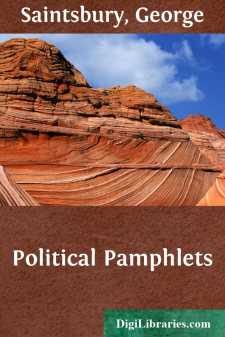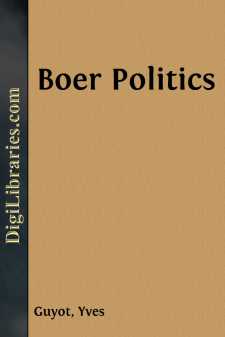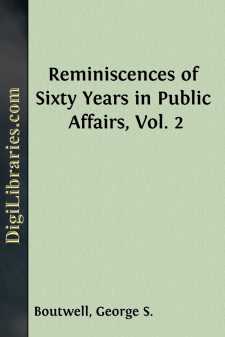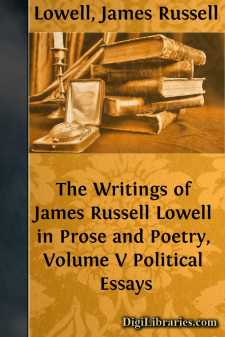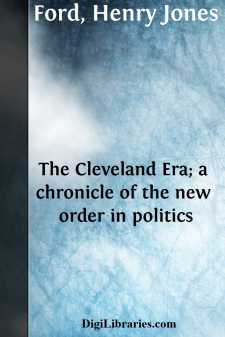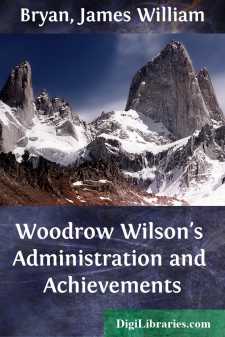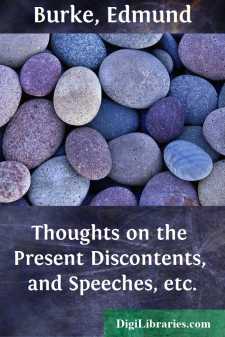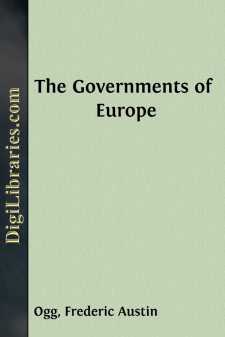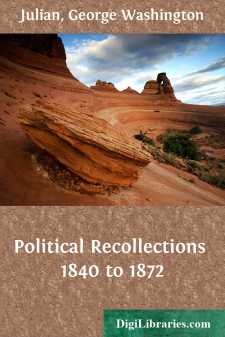Political Science
Political Science Books
Sort by:
INTRODUCTION It is sometimes thought, and very often said, that political writing, after its special day is done, becomes more dead than any other kind of literature, or even journalism. I do not know whether my own judgment is perverted by the fact of a special devotion to the business, but it certainly seems to me that both the thought and the saying are mistakes. Indeed, a rough-and-ready refutation...
more...
by:
Yves Guyot
INTRODUCTION. A word in explanation of this English edition is perhaps not unnecessary. It will be remembered that the arguments in the following pages appeared originally in the columns of Le Siècle, and from the correspondence between M. Yves Guyot and Dr. Kuyper and M. Brunetière (Appendix B), the reader will understand how the publication of Le Siècle articles in pamphlet form arose. In the...
more...
My election to Congress in 1862 was contested by Judge Benjamin F. Thomas, who was then a Republican member from the Norfolk district. The re-districting of the State brought Thomas and Train into the same district. I was nominated by the Republican Convention, and Thomas then became the candidate of the "People's Party," and at the election he was supported by the Democrats. His course in...
more...
1858 There was no apologue more popular in the Middle Ages than that of the hermit, who, musing on the wickedness and tyranny of those whom the inscrutable wisdom of Providence had intrusted with the government of the world, fell asleep, and awoke to find himself the very monarch whose abject life and capricious violence had furnished the subject of his moralizing. Endowed with irresponsible power,...
more...
by:
Henry Jones Ford
CHAPTER I. A TRANSITION PERIOD Politicians at Washington very generally failed to realize that the advent of President Hayes marked the dismissal of the issues of war and reconstruction. They regarded as an episode what turned out to be the close of an era. They saw, indeed, that public interest in the old issues had waned, but they were confident that this lack of interest was transient. They admitted...
more...
HISTORY'S PROVING GROUND he modern newspaper through its intensive, minute and zealous activities in searching out, presenting and interpreting each day the news of the entire world, is tracing with unerring accuracy the true and permanent picture of the present. This picture will endure as undisputed history for all time. Let us concede that the newspaper writer sometimes, in the passion of the...
more...
by:
Edmund Burke
INTRODUCTION Edmund Burke was born at Dublin on the first of January, 1730. His father was an attorney, who had fifteen children, of whom all but four died in their youth. Edmund, the second son, being of delicate health in his childhood, was taught at home and at his grandfather’s house in the country before he was sent with his two brothers Garrett and Richard to a school at Ballitore, under...
more...
PREFACE It is a matter of common observation that during the opening years of the twentieth century there has been, in many portions of the civilized world, a substantial quickening of interest in the principles and problems of human government. The United States is happily among those countries in which the phenomenon can be observed, and we have witnessed in recent times not only the organization of...
more...
Through the influence of early associations, I began my political life as a Whig, casting my first presidential ballot for General Harrison, in 1840. I knew next to nothing of our party politics; but in the matter of attending mass-meetings, singing Whig songs and drinking hard cider, I played a considerable part in the memorable campaign of that year. So far as ideas entered into my support of the...
more...
by:
Woodrow Wilson
I There is one great basic fact which underlies all the questions that are discussed on the political platform at the present moment. That singular fact is that nothing is done in this country as it was done twenty years ago. We are in the presence of a new organization of society. Our life has broken away from the past. The life of America is not the life that it was twenty years ago; it is not the...
more...


